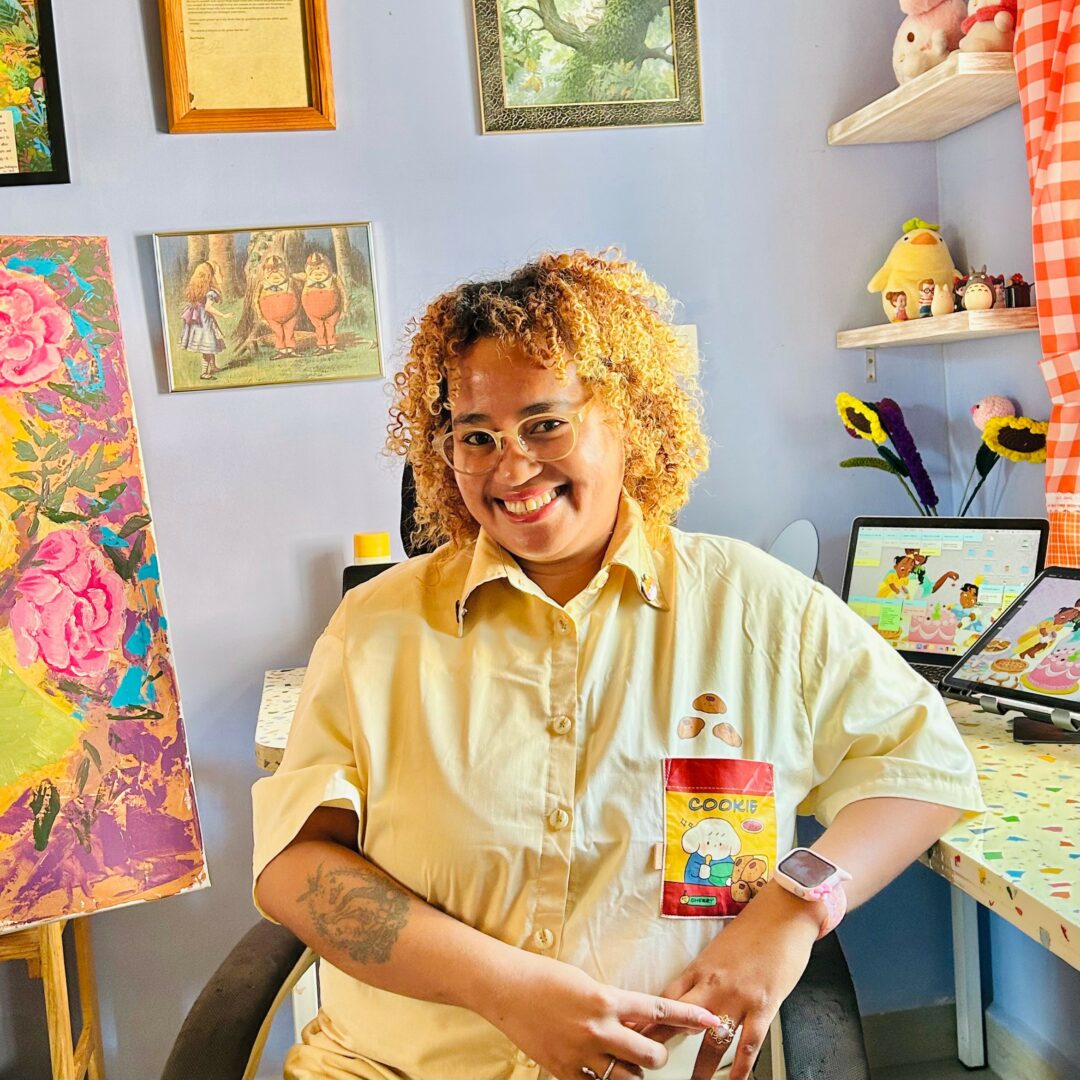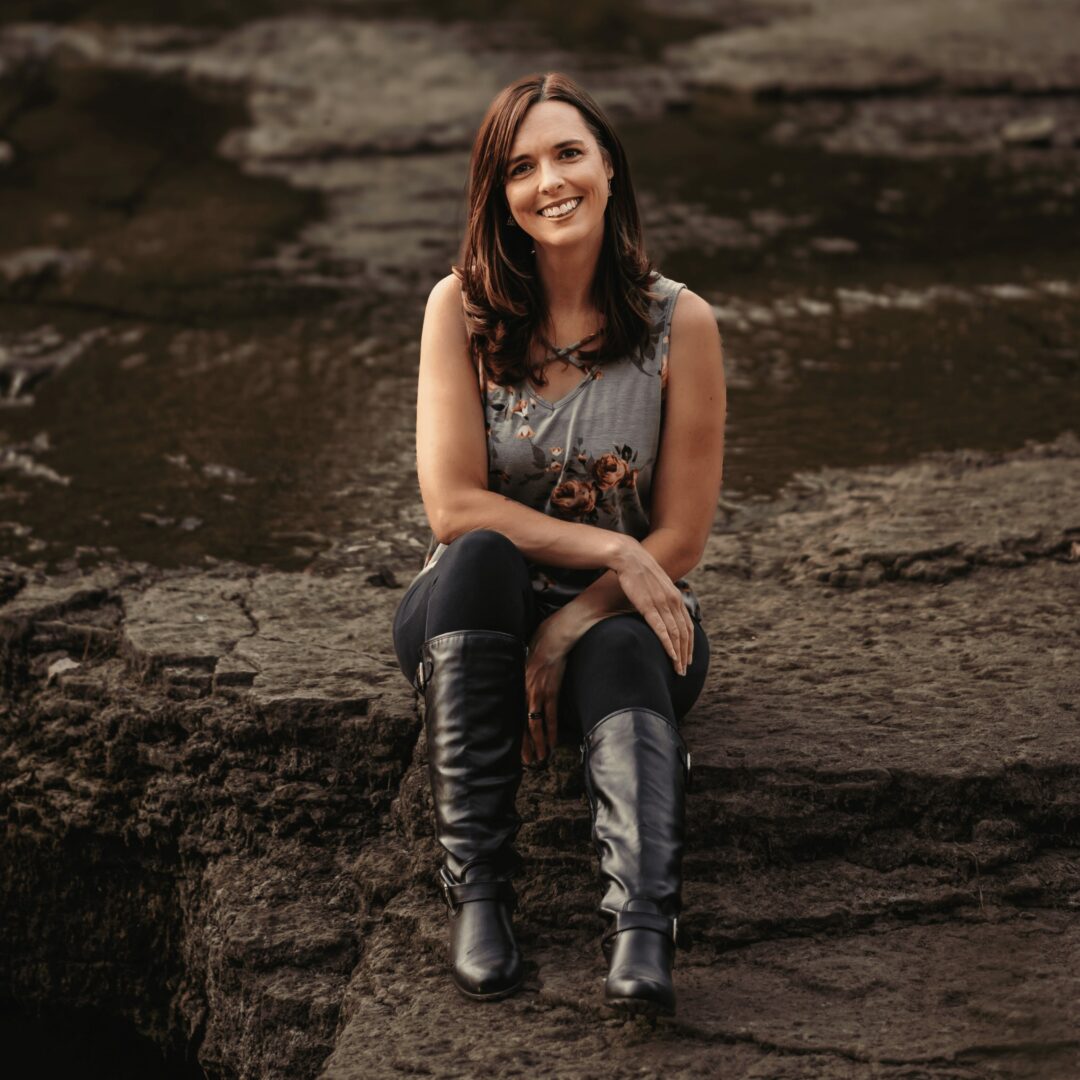We caught up with the brilliant and insightful Eric Gee a few weeks ago and have shared our conversation below.
Hi Eric, so excited to have you with us today and we are really interested in hearing your thoughts about how folks can develop their empathy? In our experience, most folks want to be empathic towards others, but in a world where we are often only surrounded by people who are very similar to us, it can sometimes be a challenge to develop empathy for others who might not be as similar to us. Any thoughts or advice?
I guess this is the perfect question to ask a life coach who wrote a book titled, The Power of Personality: Unlock the Secrets to Understanding Everyone in your Life—Including Yourself! Ironically, one of the most important lessons I learned about empathy was from a sociopath.
Tom (let’s call him that for the sake of privacy) was the first—and possibly only—sociopath I’ve ever interacted with on a daily basis. A classmate of mine for seven years spanning from second to eighth grade, to say Tom was troubled or misanthropic would be an understatement. I mean, this was a kid whose future was once described by our third-grade teacher as “jail or dead.” Early on, it seemed like I was always being paired with Tom for group assignments, most likely for three reasons:
1. While most students were afraid of him, I found his cool hostility to be interesting in that macabre, true-crime podcast kind of way.
2. Teachers assumed he was dumb (he wasn’t) and figured I could help him with his schoolwork.
3. I myself wasn’t always the most well-behaved student, so having him as a partner was part punishment.
I once saw Tom, unprovoked, trip a boy on the playground, causing a fair amount of bloodied knees and palms and an even fairer amount of crying. When I asked Tom why he did it, he told me, “Because I wanted to see what his face looks like when he cries.” Okay.
I came to the realization that Tom, unlike the average bully, wasn’t motivated by insecurity. He didn’t want acceptance from the other students. He didn’t want their love. He wanted information, regardless of the cost to himself or those around him. Was this socially acceptable? Probably not. Was this morally acceptable? Depends on the person. But removing any form of social or moral judgment, and accepting Tom’s true motivation as more fact than aberration gave me new insights into not only his future behavior, but all the actions that came before. He wasn’t dumb. He wasn’t insecure. He wasn’t even mean—at least not in the general sense— as meanness would imply him actually feeling emotions towards other people.
Empathy is a lot like exercise. Appealing in theory (who doesn’t want six-pack abs), but painful in execution. Tom taught me that, if I really want to empathize with someone, I need to meet them on their home turf, no matter how dark or unsettling. I also came to understand the power that understanding personality grants us.
If you know what someone wants, you also know what they fear. In Tom’s case, his desire for knowledge came with a distinct fear of not having it. He didn’t care if people thought he was stupid. He cared whether he thought he was stupid. That’s where I came in. When I was younger, I was a voracious reader, and while often misbehaved, I was rarely misinformed. I could give him the information he needed.
If you truly want to connect with someone, give them the power to overcome their fear. I would never say that Tom and I were friends, but we were often allies—whenever trouble came about with the average bullies, it helped to have a sociopath in my corner.
Appreciate the insights and wisdom. Before we dig deeper and ask you about the skills that matter and more, maybe you can tell our readers about yourself?
I was seven when my dad told me, “If you really want to know a person, remember two things: One, don’t just believe what they say, especially when they’re talking about themselves. People lie all the time, especially to themselves. Two, look closely at what a person does but look closer at the reasons why they do it.”
My dad’s no longer with us, but I still think of how that piece of advice fueled the intellectual and emotional journey of my youth—that and an unhealthy amount of Mountain Dew. For brevity, I’ll speed through the CV portion of this answer. I graduated from UCLA, where I studied English literature and screenwriting. I’ve worked as a starter at a golf course, coached high school basketball, was an assistant scoutmaster for a boy scout troop, taught a course on communications, co-hosted an internet radio show (a lo-fi podcast ancestor) from a dilapidated studio in East Hollywood, and built an education company that served a thousand-plus students and parents and forty-plus school districts a year. All before I turned thirty, i.e. before I was too smart to second-guess myself.
I’ve talked to a lot of people in my life. I’ve heard them lie to me, I’ve heard them lie to themselves, and I’ve had the mirror turned and seen those same lies come out of my own mouth. And I’ve watched people closely, always hearing the same question in my head: “Why?” Why does a person do the things they do? Why does it seem like our personalities, at their core, are so different from one another? And why, for the love of God, can’t I just enjoy going to prom, walking at graduation, or dancing at a wedding without the slightest hint of inhibition? I needed answers! Fortunately, I was able to find them in my own life.
I’ve always found personality theory to be a fascinating subject to study, and when combined with what my father taught me and the cumulative knowledge of my person-to-person experiences, I knew I had the ability and responsibility to share that knowledge with others.
My personality type could be described as a “closet nerd.” I might enjoy playing Magic the Gathering and Chrono Trigger, but I’m also a reasonably gifted athlete who can talk about fun things like 90s indie flicks, the release of the next Massive Attack album circa 2050 AD, or who might be the greatest NBA player of all time (hint: it’s Magic Johnson). Other personality types are different. They might as well be born with a twelve-sided die in their hand and the words “I am a halfling wizard” stamped on their forehead. And these people also hear “why?” quite a bit, just not exclusively in their heads. “Why are you so weird? Why can’t you be like everyone else?”
So, I wrote a book titled The Power of Personality, to let them know that being your own person is a powerful thing. It describes a method of personality typing that both evolves from and builds upon the best of what past theories have to offer. It’s the foundation on which I built my company and one that I still use to this day as both a writing and life coach. Sharing that method with a larger audience is the natural next step on my path. More importantly, I hope the book can help every person, regardless of their personality type, find their path.
There is so much advice out there about all the different skills and qualities folks need to develop in order to succeed in today’s highly competitive environment and often it can feel overwhelming. So, if we had to break it down to just the three that matter most, which three skills or qualities would you focus on?
1. “Confidence”: When I was seven, I wrote a choose-your-own-adventure story for a second-grade assignment. My teacher saved it as an example for future students. When I was twenty, I wrote a college paper in the form of a poem. My TA failed me. Confidence is the consistency of being yourself no matter the results.
2. Insecurity: Self-hate is unhealthy. Self-evaluation is merely making sure the confidence mentioned above is tempered with genuine humility. Though, if I’m being honest, I admit life is easier—but not better—when lived with absolute certainty.
3. Being “bad at adulting”: Recently, my nephew remarked to his teacher that his uncle (me) was “bad at adulting.” I chalk it up to the fact that the values of Gatherers (a personality type group described in The Power of Personality) permeate society, understandable considering they make up around half of the population. Unfortunately, the rest of us are often indoctrinated with these values when we’re young, attaining a steady career, starting a family, and being “responsible”.
I’m always reminded of the quote attributed to John Lennon (whether he actually said it or not is beside the point, because it’s a fantastic quote): “When I was 5 years old, my mother always told me that happiness was the key to life. When I went to school, they asked me what I wanted to be when I grew up. I wrote down ‘happy’. They told me I didn’t understand the assignment, and I told them they didn’t understand life.”
If anything can be learned from reading The Power of Personality, is that it’s okay to have different values and desires for your life than the people around you. You don’t need to justify your existence by trying to attain someone else’s goals. Take the time to find out what you really want. And fear not; you won’t be alone.
Do you think it’s better to go all in on our strengths or to try to be more well-rounded by investing effort on improving areas you aren’t as strong in?
The two aren’t mutually exclusive! It’s more a matter of timing. Focusing first on discovering our true personality type and its strengths and weaknesses is vital because it gives us an anchor in a storm of social pressure and expectations. Once we have that foundation, it’s useful to borrow from the strengths of other personality types to help work on our weaknesses.
I once had a student who was a Stag (not literally; my personality types are represented by animals). Out of all the types, Stags are the most likely to fit perfectly into the social order. Everything society tells us we should be (confident, self-initiating, rule-following, industrious, responsible, etc.) are traits that come naturally to them. This student was no different. She was at the top of her high school’s social food chain, with a perfect GPA and leadership positions in student government as well as multiple clubs. It was clear she had her anchor.
Unfortunately, high school tends to reward Stag weaknesses (a penchant for rigidity and a reliance on the idea of certainty). I knew I had to bide my time until my student’s world was less certain and less filled with teachers who rewarded obedience and conformity. That moment came a year later.
I received a text asking for help. My student was now in college and was having difficulty. Her professor didn’t want an essay written in cookie-cutter, high school essay structure (why is that even taught?). They wanted a narrative with a voice, and my student had never been asked to find hers. That’s when I taught her to adopt the strengths of other personality types, those that specialize in introspection and self-reflection. This wasn’t about changing who she was—which is a dangerous possibility if someone hasn’t established an anchor—this was about making her a better version of herself. I’m glad I was able to share this wisdom with her then and now with many more people through The Power of Personality.
Contact Info:
- Website: projectyoutopia.com/the-power-of-personality
- Instagram: @the_power_of_personality
- Facebook: https://www.facebook.com/eric.c.gee/
- Linkedin: https://www.linkedin.com/in/eric-gee-3565a79/






Image Credits
Saad Ansari Madeline Stanley




